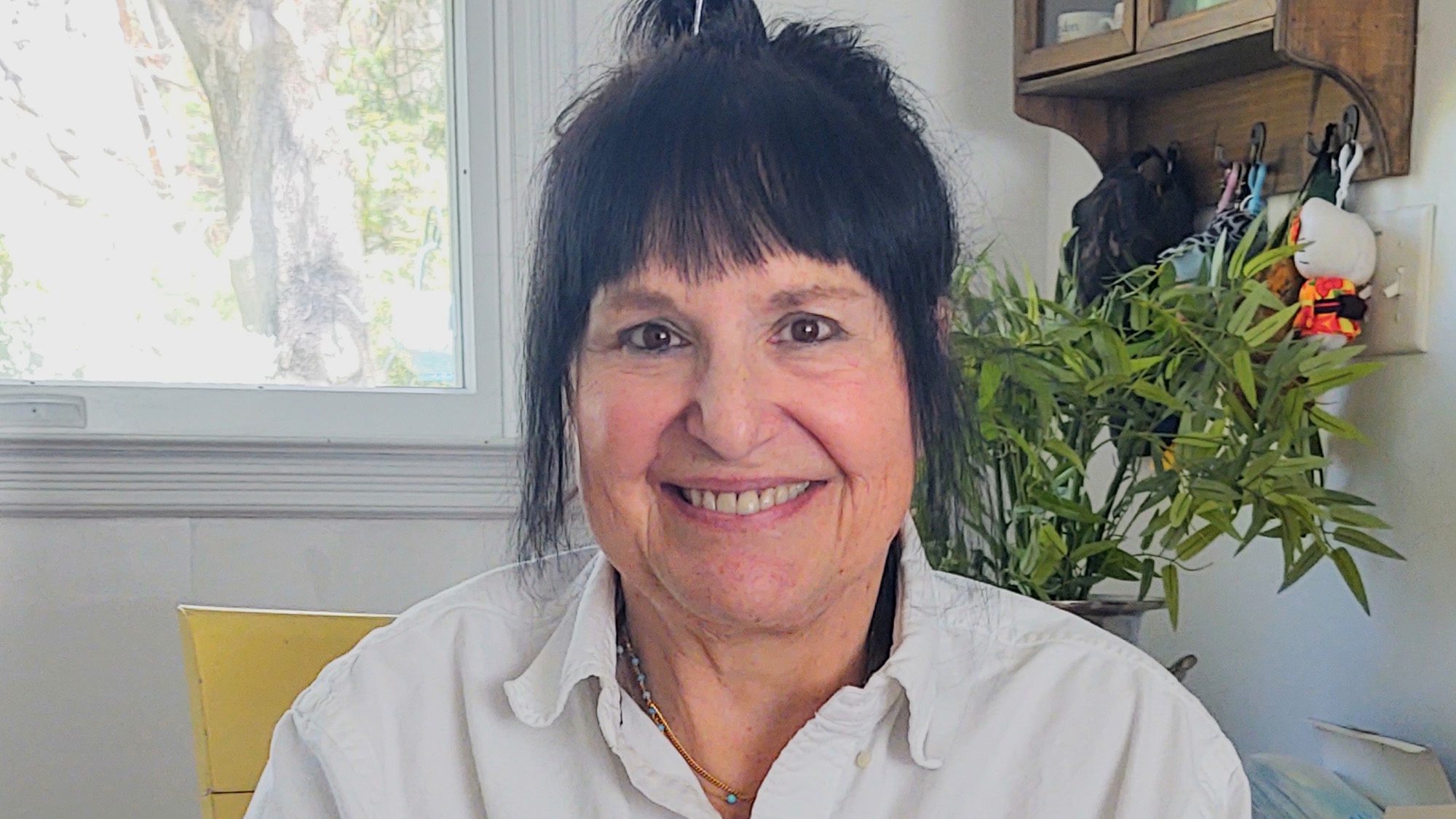Bestselling food writer helps students find taste in literature

“Food is metaphor,” Jane Stern told the class. “We’re learning about someone’s life in depth, not about how to cook a carrot.”
The students in “Food Writing,” the course Stern is teaching during Furman’s Spring 2023 semester, listened as the acclaimed food writer continued.
“Was Hemingway really writing about fishing and bullfighting?” she asked. “Was Erica Jong worried what airline company serviced the jet? Did Shakespeare wonder about the mortar holding up Juliet’s balcony?”
Similarly, food writing can describe what life was like in the Great Depression or Victorian England, in war or in peacetime, she said. Food has sparked passion and romance, driven some writers to suicide and saved others’ souls. It has experienced religious conversions, led to hedonistic frenzies and cured illnesses.
“When you’re writing about cornbread, are you really just writing about a slab of cornbread on a plate?” she asked. “Or are you writing about the cultural context of generations of people in this area, in your family, or in the restaurant that you’re eating at? Food is the beginning of what you’re writing about. It is not the end.”
In other words, no matter where you are, you can learn about the place and its people by watching what they eat. Stern started learning those lessons around 50 years ago after she and her then-husband packed up their beat-up Volkswagen Beetle for a cross-country trip, indulging a mutual desire to “hang out and eat.”
During that trip, Jane and Michael Stern kept a diary of the unknown and unique local eateries they found. That diary eventually became the book “Roadfood,” originally published in 1977 and currently in its 10th edition.
During an era when food writing mostly focused on fine cuisine and prestigious restaurants, “Roadfood” introduced a national audience to regional American food, an “eater’s guide to more than 1,000 of the best local hot spots and hidden gems across America.”
“We had no formal culinary education,” Stern said. “We had a car, we bought a Rand McNally map, and we said, ‘We can do this in a month.’ Five years later, we were still on the road. That’s how we became food writers.”
The Sterns’ nomadic legacy continues with the Roadfood website and PBS TV series. Stern continued serving up local flavor as a contributor to NPR’s “The Splendid Table” and columnist for Gourmet and Saveur magazines. Her writing has won five James Beard Foundation awards, appears in the Smithsonian, and earned her a spot in “Who’s Who in American Food.” Her byline has appeared in the New Yorker, the Atlantic, the Paris Review, Cooks Illustrated and countless other magazines, as well as on more than 40 books, many of which became New York Times bestsellers.
Food is a common motif in her work, but her books contain multitudes of interests, including travel, Elvis, pop culture, tarot reading, truckers, the Old West and dogs. Her memoir “Ambulance Girl,” detailing her midlife decision to train as an EMT in her Connecticut town, was dramatized by Kathy Bates in a Lifetime original movie.
When the time came to leave New England – “I love Connecticut, but I don’t love spending $600 a month on heating and still freezing to death,” she said – a colleague from her EMT days now living in South Carolina recommended the Upstate. Not long after moving, she found an opportunity.
“One thing I noticed in the schools around here is that people don’t teach food writing,” said Stern, who had taught the subject at Yale, Wesleyan and colleges in Connecticut.
She approached Melinda Menzer, chair of Furman’s Department of English, and soon her course was added to the catalog.
For her students, the course represents “the first day of the rest of their lives as a food writer,” she said.
“You’re going to come in here as people who, if I say, ‘How was your hamburger?’ you just say, ‘Good,’” she told the class. “But at the end of the class, you’ll be Shakespeare.”